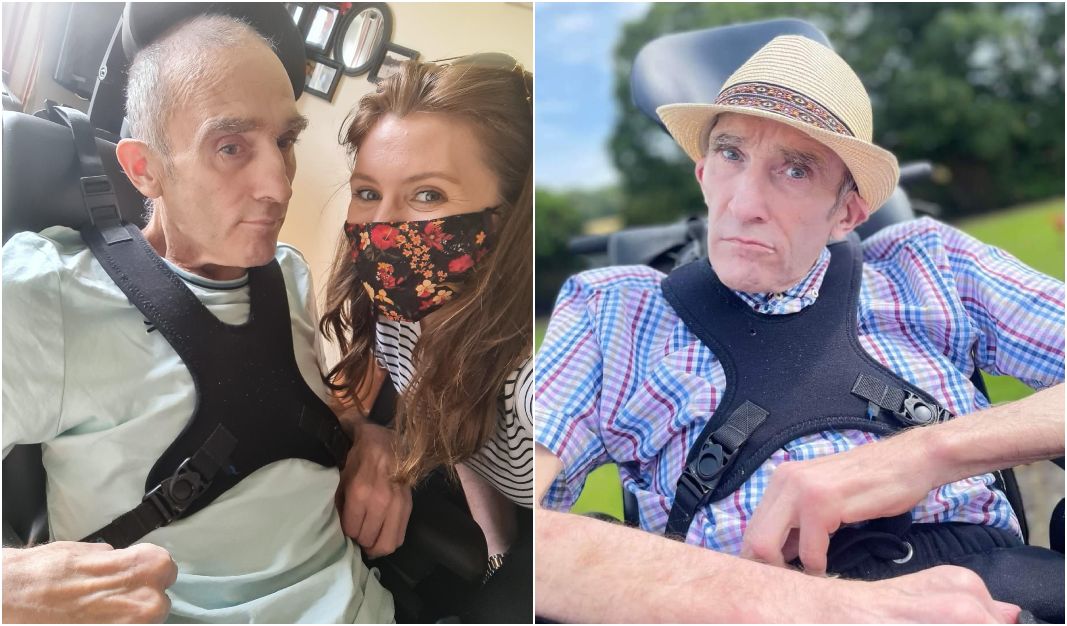
An Armagh woman whose father died from Huntington’s disease just three years ago has described the moment she heard news of a major scientific breakthrough in treating the condition as “a great day for us all”.
Earlier this week, researchers revealed that a gene therapy trial has, for the first time, shown it can slow the progression of Huntington’s disease — a hereditary, degenerative condition that causes the progressive breakdown of nerve cells in the brain.
Ashley Clarke, who tested negative for the gene but remains heavily involved in campaigning for awareness and support, the news was deeply emotional.
“I received a screen grab of the BBC report on my lunch break and just burst out crying,” she told Armagh I.
“I love and miss my dad every day, but the hope and love I felt for the Huntington’s community was overwhelming. It was a great day for us all.”
Ashley father’s death in 2022 was a devastating loss, but she said the progress made in science since then gives her comfort.
“It’s sad to think this treatment is closer than ever and I lost my dad only three years ago, but science is continually moving. The HD community are some of the strongest people I know, and working alongside the scientific community, we have gotten this far. Maybe one day, we won’t have to live scared for our future — I did that for long enough.”
While Ashley, like many like her, has hailed the breakthrough – she knows there is much still to do.
“This drug trial is fascinating and complex, but it’s still only in phase two. We are a long way off seeing it in hospitals.
“But what we can celebrate is this: in the high-dose group followed for three years, disease progression slowed by around 75% compared with matched controls. That’s the first time anything like this has ever been achieved. It shows Huntington’s can be slowed — something once thought impossible. This is the first domino to fall.”
For Ashley, the breakthrough doesn’t mean her campaigning work is finished — quite the opposite.
“My campaigning will continue as strong as ever. We still have a lot of work to do on awareness and access to treatment. Too often it’s a postcode lottery, not only here but around the world.
“A similar treatment has been reported to cost around £2 million, and if this one does move forward positively and eventually gets approved, we need to make sure it’s available to everyone — no matter what their bank balance is.”
She added: “Just because I tested negative doesn’t mean I will stop fighting for this community. The Huntington’s community helped me through some of the toughest days I’ve experienced. I will never give up on them.”





